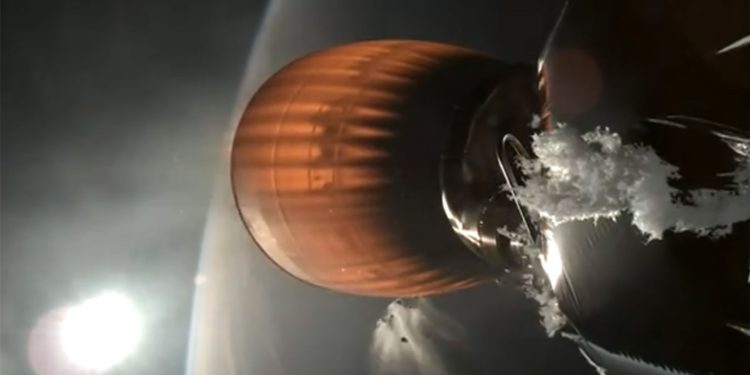SpaceX, a company renowned for its groundbreaking space missions, recently hit an unexpected obstacle after successfully completing a critical crew mission. Just after safely delivering NASA astronaut Nick Hague and Russian cosmonaut Aleksandr Gorbunov, the Falcon 9 rocket’s upper stage encountered an unexpected issue during its return to Earth.
According to a statement released by SpaceX, the rocket stage experienced what’s known as an “off-nominal deorbit burn,” meaning that the re-entry maneuver did not go according to plan. The rocket was supposed to land in a predetermined area of the South Pacific Ocean, where its controlled descent would result in safe disposal. However, the stage ended up landing east of New Zealand, outside of the target zone. Although no injuries were reported, the situation underscores the importance of precise trajectory calculations when dealing with large spacecraft re-entries.
A Rare but Serious Occurrence
While it may seem minor, a malfunction during deorbit burns can lead to serious consequences. The re-entry of massive metal structures like the Falcon 9’s upper stage can pose risks if not controlled properly, even if the designated landing zone is in the ocean.
SpaceX has responded by voluntarily grounding all Falcon 9 launches until they can fully assess the situation. “We will resume launching after we better understand the root cause,” the company stated. The decision to pause operations is a responsible move by the Elon Musk-led company, demonstrating a commitment to safety over rapid progress.
Recent Falcon 9 Incidents Raise Questions
This isn’t the first time Falcon 9 has encountered issues. In July, the rocket suffered a liquid oxygen leak during a Starlink satellite launch, resulting in an explosion. Although the event was rare—SpaceX had previously launched 344 Falcon 9 rockets without incident—it did prompt the Federal Aviation Administration (FAA) to temporarily ground all Falcon 9 rockets.
A separate incident occurred last month when a first-stage booster caught fire and toppled over while attempting to land on a floating barge at sea. These back-to-back mishaps have sparked curiosity about the potential link between these issues and the latest anomaly.
Waiting for Answers
SpaceX has yet to provide a detailed explanation of the cause behind this recent deorbit anomaly. It’s unclear whether this incident shares any connection with the previous technical problems. While we wait for more information, the FAA has not yet commented on the situation. However, SpaceX’s swift action to pause launches shows that the company is taking this seriously.
Given that the upper stage was always meant to fall into the ocean, the good news is that no one was ever in immediate danger. The fact that SpaceX is proactively investigating the issue is reassuring, particularly when the stakes in space travel are so high.
Until further details emerge, the aerospace community is left to speculate how long Falcon 9 missions will be on hold. After the July incident, SpaceX paused operations for only 15 days. Whether this latest anomaly will result in a longer delay remains to be seen, but one thing is certain: SpaceX’s rapid response reflects their dedication to safety and transparency.











